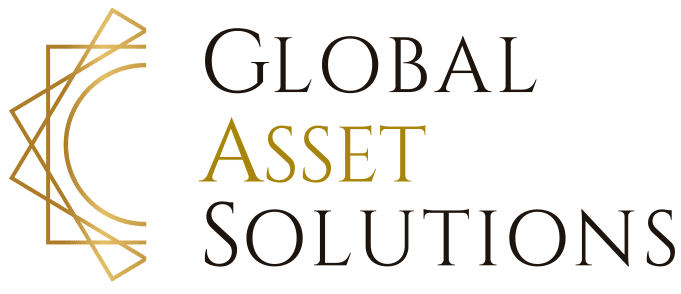The ongoing Covid-19 crisis had strenuous effects on hotel operations. In the face of this challenge, hoteliers have adapted and created many ingenious responses to make the situation more manageable. We have created an exhaustive list of operational buzzwords to remember. We elaborated on established terms that have a focus on management, which have gained renewed importance. Lastly, we have created a brief list of new Sales & Marketing trends to keep in mind for 2021.
Hotel Operational Buzzwords
-
Contactless Hospitality
With social distancing becoming a part of living in today’s world, many hotels have adapted by offering their guests contactless check-ins to make them feel safer. Although this leads to a lack of human touch, new technologies such as “quick response” and voice activation help provide a more convenient and personal approach.
-
In-room Fitness
Hotel fitness rooms can be booked for private sessions – generating additional revenue along the way. In-room fitness facilities are also available as part of packages, with gym classes on TV (e.g., Yoga), weights, resistance bands, and healthy snacks that can be delivered directly to guests.
-
Online Meetings
Conferences and panels that once took place in hotels have shifted online. Given such, there are new expectations to be met by the hotels’ side, such as a smooth setup process and adequate technical features.
Find out more about: Meetings and Events Long-Term Recovery after COVID-19 pandemic.
-
Interior Design Flexibility
Architects and designers need to create spaces that can evolve with the realities of public health, as well as the needs and preferences of guests, for instance, by using easily movable furniture in public areas. Hoteliers also need to create solutions to break up large meeting spaces and make them more manageable and secure to keep the operation running.
-
Smart Use (of material)
Materials and their properties are at the forefront of hotel cleanliness. Easy-to-clean equipment is preferred in rooms, such as hard floors and homogeneous surfaces. The simpler and leaner the equipment, the safer guests feel when they are in contact with it.
-
Streamlined Menus
Streamline your menus by reducing the number of dishes on the menu. There are fewer ingredients to purchase and less going to waste in case of closure by limiting the offer. Hence, reducing the costs of the operation.
-
Digital menus
Menu accessible by QR code or allowing more information provided to guests and adjusting to food stock and menu engineering
Hotel Management Buzzwords
-
Break-even Analysis
Hoteliers are facing the tough choice of whether to close their doors or not. Analyzing the cost-saving benefits of staying open versus closing is crucial for making an informed decision. It is essential to know the necessary RevPAR level to re-open. The break-even threshold may be impacted by different cost reductions. In the longer term, there is a greater need for agility in hospitality to weather a crisis, and the focus should be on shifting the proportionality of fixed costs to variable costs.
Find out more about: How to calculate and monitor your break-even point.
-
Operational Reserve
Having capital set aside for an FF&E reserve or a separate CapEx account is a common theme in hospitality. It is worth considering committing capital to an ‘operational reserve’ account that will help for all possible contingencies. Hotels with a stronger balance sheet are better able to endure a crisis of any sort. One thing that has been a valuable lesson during the pandemic is that having multiple back-up plans is essential for longevity.
-
Rate Shopping
Investing in a rate shopping tool allows one to compare competitors side by side and ensure that a property is competitive in its market. This tool is handy in finding out if the property is following the right pricing strategy. The post-Covid-19 hotel market should be very competitive to attract limited demand. Therefore, hoteliers must seek to gain an early competitive advantage and gain market share.
Related post: 7 Revenue Management practices to follow after the pandemic
-
Reforecasting
Forecasting is nothing new to the industry. Nonetheless, the frequency with which hoteliers must conduct their forecasts has increased. The parameters influencing the forecast are continually changing and require a significant effort to follow. Well worth the struggle as forecasting helps reduce uncertainty and anticipate change in the market, much needed during these unprecedented times.
For further information: Forecasting in times of uncertainty
-
Reliefs & Deferrals
It may be challenging to keep up with interest payments as cash flows have been restricted. However, some banks have been more lenient and have deferred interest payments until an expected recovery. Franchisors have also offered relief in the form of foregoing franchise fees until we see the end of the pandemic.
-
Digital Marketing
In a time like this where frequent testing and adaptation are necessary, the role of a Revenue Manager has evolved. Revenue Managers now must work hand in hand with the marketing team to communicate the evolving rates to the customers. In this scheme, digital marketing has become increasingly important. Integration of artificial intelligence (AI) and using past data relevant to the current pandemic are examples of digital incorporation.
-
Risk Management & Asset Management
Today, more than ever, risk management and asset management go hand in hand. The current instability calls for regulatory risk, and Risk Managers put themselves in charge of re-examining models and operational formats. As asset management today requires a risk-based approach, the Risk and Asset Manager of hotels must work together.
Related post: The impact of Covid-19 on hotel insurance premiums
-
Risk-adjusted Investment
Many hotel owners are looking to convert their assets into other commercial real estate classes or potentially residential real estate as it may lead to a higher projected return on investment. In the process of making the decision, hotel owners’ risk tolerance for different asset classes is essential in assessing whether a conversion to alternative use is suitable for them.
-
Safety Control
Safety control is nothing new to the industry, but it has become paramount for hotels to consider and vigorously enforce. The hygiene and disinfection aspect must be implemented and communicated to the staff, visitors, and guests to ensure their safety as well as to strengthen the trust. When communicating, simple and globally recognizable labels must be used to facilitate understanding. Hotels must provide proper training with thorough procedures to execute successful safety control.
-
Testing (new strategies)
Testing new and different strategies has become the new norm in the hotel industry with the pandemic strike. Testing has become vital to figure out what works and what doesn’t in the midst of one of history’s worst global pandemics with not much precedent to follow. Therefore, it is essential that testing and reflecting are done regularly and parallel to hotels’ specific market. For testing to be more fruitful, employees of the hotel must be given a sense of empowerment and easement to encourage trying out novel ideas and strategies without the constraints stemming from the fear of failure.
Sales & Marketing Buzzwords
-
Daycation
Daycation is simply a day of vacation where one can enjoy a day in a hotel and return home to one’s bed at night. Daycation usually involves using only the hotel’s facilities, such as a day at the spa and relaxing by the pool. But with more empty rooms than regular times, hotels should consider such trends and offer day-usage of rooms for the comfort of “daycationers” and ensure optimal comfort that can be relished during the day.
-
Staycation
While people are confined, the need to step outside increases. Staycation is a solution that brings people to book their holidays (“vacation” element) close to their homes (“stay” element). Although staycation is an already existing trend and was especially big in Singapore, it has spread worldwide with the outbreak of the pandemic.
-
WFH (Work from Hotel)
‘Work from hotel’ accommodates for guests to come into the hotel for the sole purpose of working during regular working hours. Especially with the growing home office situation, many employees with families feel the need to have a separate work area. To fulfill this need, a comfortable and quiet space and other necessary amenities and services must be provided.
-
Dine & Stay
Dine & stay refers to a package where guests are invited to stay at the hotel after dining on-site. The packages portray accommodation as an add-on to the F&B element rather than consider it the main feature.
-
Slow Tourism
Slow tourism prioritizes a deep and genuine travel experience based on the three pillars of sustainability: economic, environmental, and social. Mainly, slow tourism involves spending more time in the same place and getting to know the local community and its environment better.
-
Workation
Among the many remote working forms, there is workation, which implies working while being on vacation. Unlike WFH, workation is a travel trend that enables integrating elements of leisure while working remotely. Workation involves standard working days and hours while being on vacation outside of the working time.
-
At-home Experience
With people being uncomfortable going out in crowded restaurants, foodservice operators managed to generate revenue from a quality F&B offering, delivered, or even prepared by chefs at home. It is possible to fully recreate restaurants’ ambiance during dinners or brunches in the comfort of your own home.
Written by
Darin Yi, Léo Kleinpeter, and Luke Smith (Students from the Ecole Hôtelière de Lausanne).
Co-Published with Alex Sogno (CEO – Senior Hotel Asset Manager at Global Asset Solutions) and Remy Rein (Senior Lecturer at Ecole Hôtelière de Lausanne).
Global Asset Solutions, your key partner in hotel asset management, has partnered with a team of students from Ecole Hôtelière de Lausanne. Together, we are working on compiling the best practices to help hotel owners and operators navigate the Covid-19 crisis. By combining diligent research, expert opinions, and our own experiences, we publish articles on the most current topics facing our industry.
Post
Portugal Hotel Market Outlook 2024
PORTUGAL’S HOSPITALITY INDUSTRY is experiencing an impressive comeback post…
Post
Know thyself for budget success
“Before you can budget for the year ahead, it is critical that you assess the…
Post
Should hotels refuse to join a club which would have them?
The current battleground for the big hotel chains is not pipelines, but loyalty…
Post
The digital concierge: how can hotels use technology to maximise revenue and customer experience?
More than half of all business trips are now a mix business and leisure – so…
Post
Spanish Hotel Market 2024
SPAIN’S TOURISM SECTOR in 2023 exceeded all initial expectations and surpassed…
Post
Balancing the scale of luxury
Tell someone in the sector your hot new tip is luxury growth and you’ll lose…
Post
The luxury sustainability conundrum
Climate change is one of the most significant challenges society is facing, but…
Post
Failing the AI tech race
Attend any conference over the past decade, and a common theme is the devilish…
Post
From compound stays to compound interest
Back in the days of yore - or, for those who measure time this way -…
Post
Projecting into an AI future
The world of hospitality has seen remarkable changes over the past few decades,…
Post
Bringing strength to soft brands
‘Another day, another brand’ could well be the catchphrase of our sector, but…
Post
The need for CAPEX and creating returns
As an asset manager, it’s my job to create and manage the relationship between…
Post
Budgeting for change pt.2
In the second of our series on the budget approval process, we are looking at…
Post
Budgeting for change pt.1
Each season brings with it change and, depending on the time of year, the…

